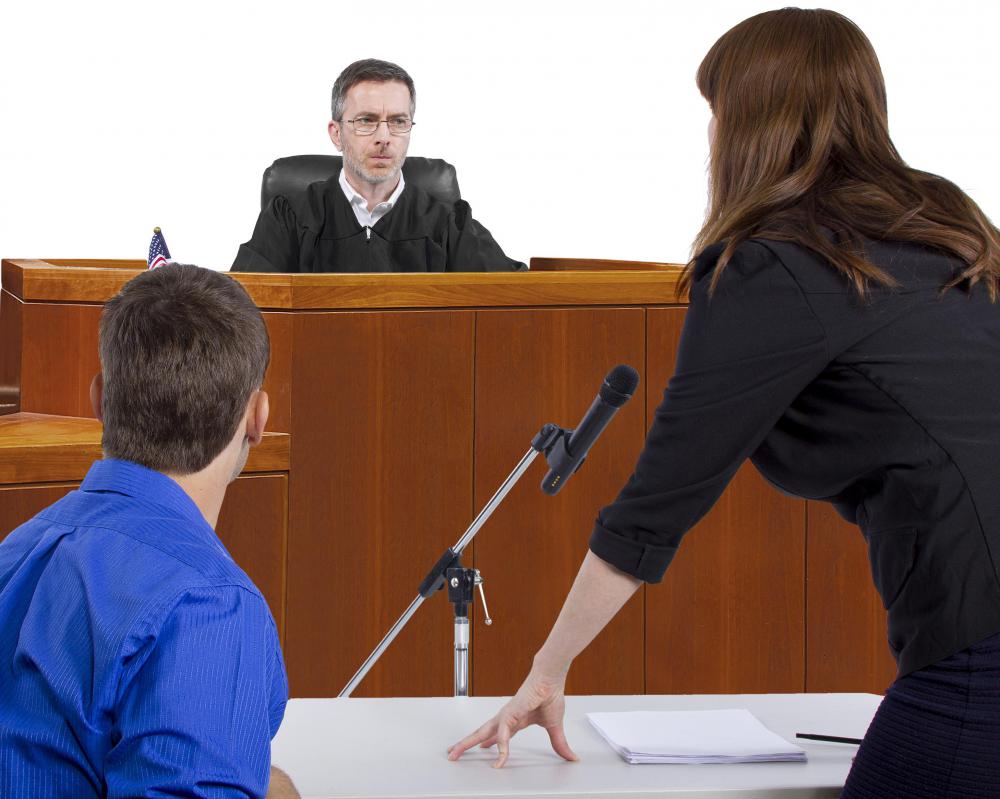At WiseGEEK, we're committed to delivering accurate, trustworthy information. Our expert-authored content is rigorously fact-checked and sourced from credible authorities. Discover how we uphold the highest standards in providing you with reliable knowledge.
What is an Expert Witness Deposition?
An expert witness deposition is a process used to obtain information from a person who will testify as an expert at a trial. A deposition is a discovery method that attorneys use to prepare for trial. Discovery is an opportunity for each party to a lawsuit to get information from an opposing party. An expert witness deposition allows an attorney to ask various questions of an expert who may be called by an opposing party to testify at trial. A person who must respond to the questions at a deposition is a deponent.
A lawyer who intends to conduct an expert witness deposition must weigh the pros and cons of doing so. For instance, one concern is the cost of conducting such a deposition. The party that seeks to perform an expert witness deposition is required to pay the expert a reasonable fee for his or her time. This means the actual time to participate in the deposition, the expert’s time to prepare for the deposition, and travel time. These costs are in addition to the actual costs of the deposition, which will typically require paying a court reporter to record the deposition and prepare a transcript.

Further, a lawyer may need to confer with his own expert to prepare for the expert witness deposition. A lawyer may also need to have his own expert present at the deposition to help by making suggestions as to what questions the lawyer should ask as follow-up to responses. Another concern with conducting a deposition is that it will allow the opposing party to learn how the attorney is analyzing the case. This allows the opposing party to gain insight into what approach the lawyer is likely to take at trial. Thus, a lawyer must assess many factors before taking action to conduct an expert witness deposition.

If a lawyer decides that it is best to conduct an expert witness deposition, the lawyer will likely proceed by serving interrogatories on the expert prior to the deposition. Interrogatories are another discovery device that a lawyer will use to get information from an opposing party. Interrogatories are a set of written questions that a lawyer will design to help prepare a case for trial. Lawyers will typically serve interrogatories on an expert to develop a strategy on what types of questions to ask during the expert witness deposition. A lawyer will design the interrogatories carefully to avoid evasive responses, and the person responding to the interrogatories must do so under oath.
AS FEATURED ON:
AS FEATURED ON:












Discuss this Article
Post your comments